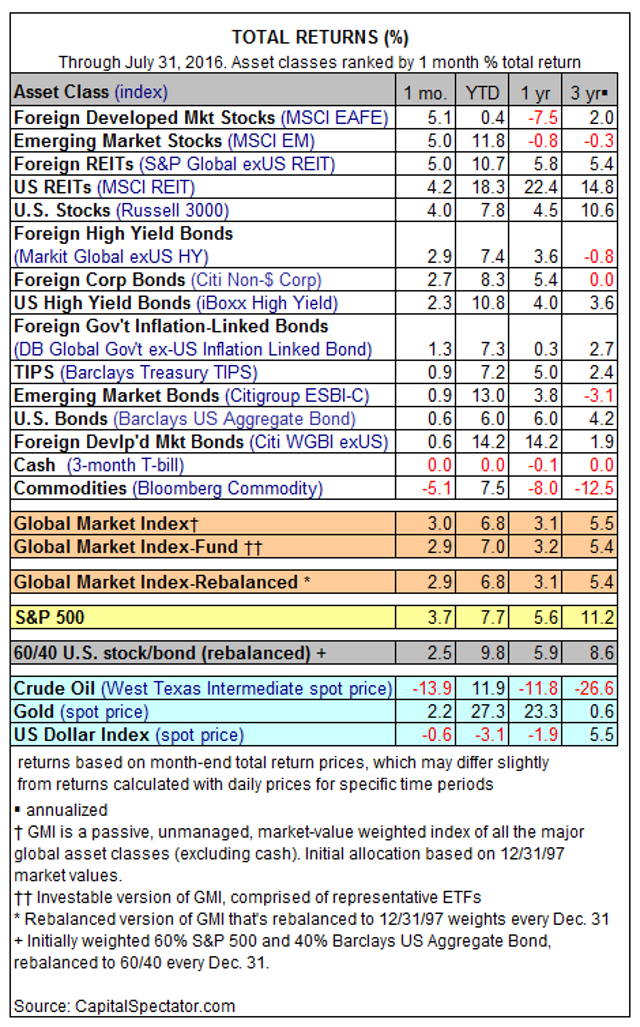It looks like you're new here. If you want to get involved, click one of these buttons!



Japan is showing the way in many ways.
Central banks globally continue to "play". Bank of Japan recently did not further reduce bond yields with market intervention, but expanded their ability to purchase Japanese market etf's (equity) specifically designed for the Bank of Japan to purchase. The ECB, among other ongoing purchases is also purchasing eurozone corporate bonds. I have no idea with what our Federal Reserve is involved within the market place.
Gotta go help at high school band camp.
Most interesting times continue.....
Catch
I'm not that familiar with Intrepid... What is it that you like so much about them, other than performance?As an investor in Oakmark funds for the past 20 years or so, specifically the international funds, I am not happy to hear this. Both OAKIX and OAKEX performance has suffered recently and I am fairly certain that asset bloat with OAKIX at 23.5 billion AUM and OAKEX at 2.4 billion AUM has been a factor on this poor performance. OAKEX in particular hasn't beaten it arrivals for last 1 yr, 3 yr, 5yr , or 10 yr periods. But I believed in the management and stuck with them all the years albeit cutting back on my exposure to OAKEX to about 25% of my original investment. But I think this may finally bring me to sell the remaining holdings in the fund. I originally invested in OAKEX to get small cap international value/blend exposure which was not offered in my 401K selections which only had foreign LC and Emerging Market as investment options. But now I believe their are several better options in the SC International arena. Funds such as ICMIX, ISMRX, and SBSHX all appear to be more compelling options in the international SC area with ICMIX probably being the standout option IMHO. So while I am glad that Oakmark believes that have some many good investment options, I am saying good bye to at least to OAKEX. So be warned since I am planning on selling OAKEX next year they probably return to stellar performance against their peers - just my luck. Disclosure I currently own 4 Oakmark funds - OAKLX, OAKWX, OAKIX, and OAKEX.
"Investors have poured $3 billion into the fund over the past six months and its assets have nearly doubled in the past three years"Meh. Not seeing what size has to do with it, pro or con.
The fund is rather similar to Harbor Int'l. But with all due respect, I think you'll find LZIEX to be just as similar ...You might put the Aston/Pictet International Fund on your watch list. It would be more similar to the Harbor fund than others mentioned so far.
LZIEX has a somewhat lower turnover rate (23.6% compared to 53%), and a somewhat larger weighted market cap ($50.1B compared to $43B or Harbor's $67B). AUM are close, with LZIEX having $1.2B, of which 90% is institutional, and APINX having $0.9B AUM. Sector weightings are likewise similar.
APINX is only two years old, but it has demonstrated good defensive properties since the dust-up started in Europe last year. Low turnover so far. Measured as a LC blend fund, it has a median cap of around 5B. It has some size (currently around $1B, almost entirely institutional money).
Your memory is better than mine. The only Pictet fund I (or apparently VintageFreak) could remember offered in the US was Pictet Global Water. While Pictet is a significant presence in funds offered outside the US, it seems that their US-sold funds folded over a decade ago.When international is on a tear, I can't recall a Pictet fund that hasn't done well (although my memory stops about 10 yrs ago on this, so take that with some salt, so to speak).
© 2015 Mutual Fund Observer. All rights reserved.
© 2015 Mutual Fund Observer. All rights reserved. Powered by Vanilla